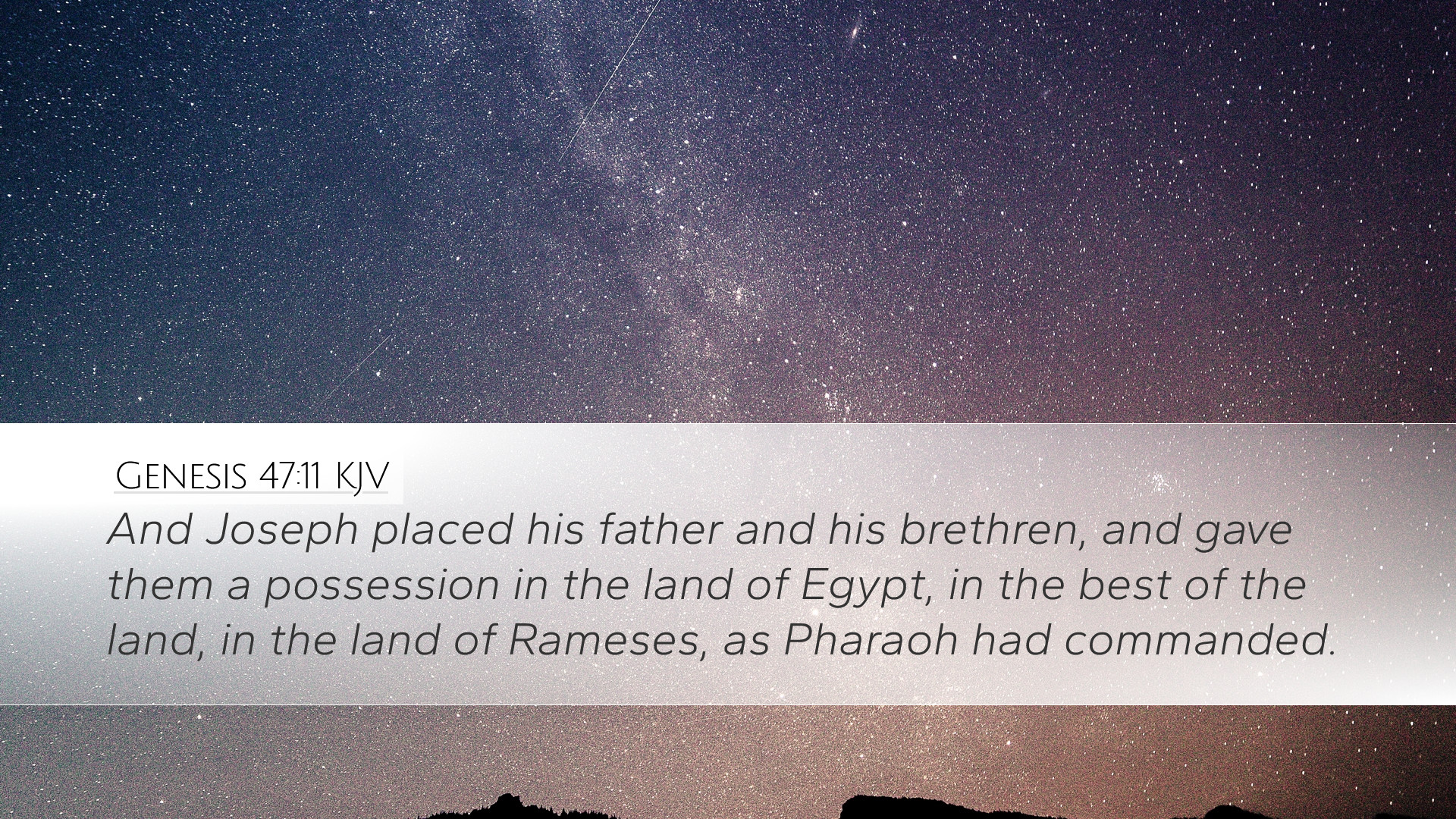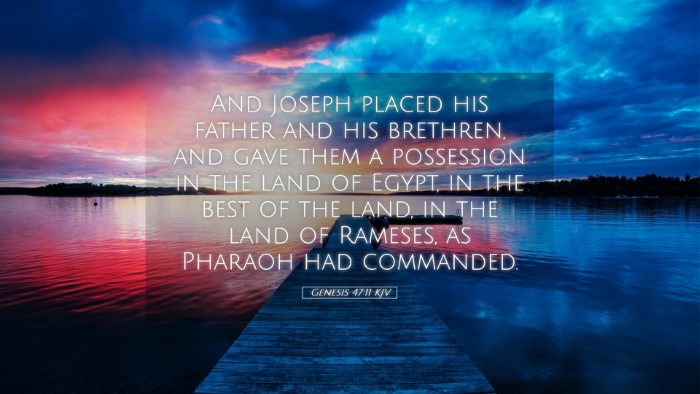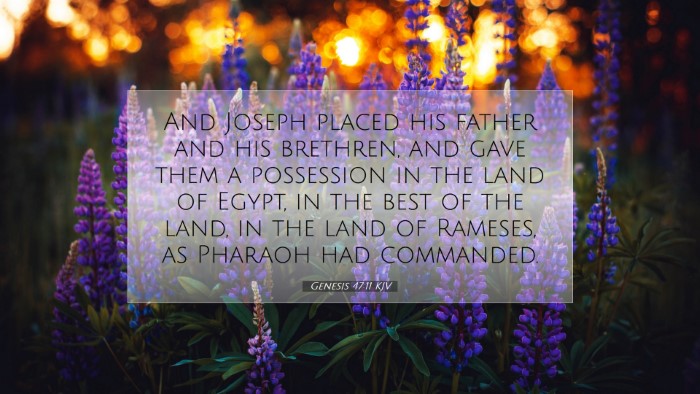Commentary on Genesis 47:11
Genesis 47:11 (KJV): "And Joseph placed his father and his brethren, and gave them a possession in the land of Egypt, in the best of the land, in the land of Rameses, as Pharaoh had commanded."
Introduction
The narrative of Genesis 47:11 is pivotal in understanding the dynamics of Joseph's leadership and the providence of God in the lives of Jacob and his family. This verse encapsulates the transition of Jacob's family into Egypt, highlighting both Joseph's administrative acumen and God's sovereign plan to preserve His people during a time of famine. The commentaries of Matthew Henry, Albert Barnes, and Adam Clarke provide rich insights into the implications of this verse for understanding God's covenant promises and the emerging identity of Israel.
Joseph's Role and Authority
Joseph's actions in this verse underscore his role as a mediator between his family and Pharaoh. Henry comments on Joseph's authority, noting that he governed wisely, ensuring that his family's needs were met in a foreign land. This was not merely a familial act but a fulfillment of God’s plan. Joseph's placement of his family in "the best of the land" reflects both his status as a prince of Egypt and the richness of God's provision.
Barnes emphasizes the idea that Joseph's administrative decisions were guided by divine wisdom. This moment is not merely logistical; it symbolizes the larger narrative of the blessings that would flow to Israel, even in a place of potential enmity. Joseph's provisions are seen as an extension of God's mercy and kindness.
The Significance of "the Land of Rameses"
The choice of "the land of Rameses" is significant in the historical and theological contexts. Clarke notes that this region, linked to Pharaoh Rameses, would later become a central location in the Exodus narrative. The placement here connects the story of preservation during famine with the subsequent story of deliverance from bondage. It suggests that God was actively shaping the identity and future of Israel, even when they were in Egypt.
Moreover, the land of Rameses capable of sustaining a large population signifies God's foresight. As Jacob's descendants would grow into a multitude, this land would provide for their needs until the time of their liberation, thus undergirding the promise made to Abraham about their future (Genesis 12:2-3).
God’s Providence through Adversity
The family’s settlement in Egypt is illustrative of God’s greater redemptive plans. Henry points out that, while initially meant as a refuge, the settling of Jacob's family in Egypt would lead to their eventual oppression. This duality reflects the complexity of God's providential care—He uses even adverse circumstances to fulfill His promises.
Barnes remarks that Joseph’s family did not fully understand that their provision in Egypt would lead to a great trial but underscores the importance of maintaining faith in God's overarching plan, even amidst uncertainties.
Application for Today
For pastors and theologians, Genesis 47:11 serves as a reminder of God's faithfulness to His covenant. Just as Joseph provided for his family amidst a grim situation, God continues to provide for His people today, often in surprising ways. Clarke mentions that believers should trust in God's providence, which often works beyond our understanding.
- Faith in God’s Provision: The assurance that God cares for His people remains a consistent theme. In adversity, we’re called to remember that God’s hand is moving in ways we may not immediately recognize.
- Role of Leaders: Joseph’s example as a leader who cares for his family's welfare is a model for church leaders today, emphasizing the importance of stewardship and compassion.
- The Importance of Place: The land given to Joseph's family symbolizes both a physical provision and spiritual heritage linking back to God's promises, reminding us of the significance of community and belonging in the life of faith.
Conclusion
Genesis 47:11 encapsulates a moment rich with theological significance as it highlights God’s unwavering commitment to His covenant with His people. Through Joseph’s actions, we see a pattern of divine providence that continues to resonate today. Scholars and readers alike can glean from this verse the assurance that God orchestrates our lives, even when circumstances appear bleak, leading to both sustenance and eventual deliverance.
The unfolding narrative of Jacob's family signifies that even in the foreign land of Egypt, God's promises would not be thwarted, paving the way for the fulfillment of the covenant in the future—a testament to the eternal faithfulness of our God.


